An Interview with One of the Greatest Leaders in Chemical Engineering, Medicine and Science- Dr. Robert S. Langer, Sc.D. , MIT Institute Professor and Co-Founder of Moderna
Published in Bioengineering & Biotechnology and Materials
Please note the PowerPoint was made earlier, and the citation amount was as of February 2, 2025.
---
Interview with Dr. Robert Langer (MIT)- played twice, and the views reflect those of my guest and I, and do not constitute medical advice, consultation or professional recommendations. Please see the relevant health or academic professionals for advice and feedback.
---
Interview Transcript:
David Joshua Ferguson:
We're happy you're tuning in. My guest today is Dr. Robert Langer. Thanks for joining me today. And it's good to hear from you. Just briefly, I'll phone my audience about you. Dr. Robert Samuel Langer Jr. is an American chemical engineer, scientist, entrepreneur, inventor, and while the World Institute professor at the Massachusetts Institute of Technology, he is
David Joshua Ferguson:
a Professor of chemical and biomedical engineering maintains active in the Department of Chemical Engineering and Department of Biological Engineering at M.I.T., is also a faculty member of the Harvard and MIT Program in Health Sciences and Technology and the Koch Institute for Integrative Cancer Research.
David Joshua Ferguson:
In 2015, Dr. Robert Langer was awarded the Queen Elizabeth Prize for Engineering. He has numerous accolades and achievements.
—————————————————————————————————-
Shortened Biography:
Robert S. Langer is one of 9 Institute Professors at MIT; being an Institute Professor is the highest honor that can be awarded to a faculty member. Dr. Langer has written more than 1,600 articles. He also has over 1,500 issued and pending patents worldwide. Dr. Langer’s patents have been licensed or sublicensed to over 400 pharmaceutical, chemical, biotechnology and medical device companies. He is the most cited engineer in history (h-index 330 with more than 448,000 citations according to Google Scholar as of May 2025).
He served as a member of the United States Food and Drug Administration’s SCIENCE Board, the FDA’s highest advisory board, from 1995 — 2002 and as its Chairman from 1999-2002.
Dr. Langer has received over 220 major awards. He is one of 3 living individuals to have received both the United States National Medal of Science (2006) and the United States National Medal of Technology and Innovation (2011). He also received the 1996 Gairdner Foundation International Award, the 2002 Charles Stark Draper Prize, considered the equivalent of the Nobel Prize for engineers, the 2008 Millennium Prize, the world’s largest technology prize, the 2012 Priestley Medal, the highest award of the American Chemical Society, the 2013 Wolf Prize in Chemistry, the 2014 Breakthrough Prize in Life Sciences and the 2014 Kyoto Prize. In 2015, Dr. Langer received the Queen Elizabeth Prize for Engineering. Among numerous other awards Langer has received are the Dickson Prize for Science (2002), the Heinz Award for Technology, Economy and Employment (2003), the Harvey Prize (2003), the John Fritz Award (2003) (given previously to inventors such as Thomas Edison and Orville Wright), the General Motors Kettering Prize for Cancer Research (2004), the Dan David Prize in Materials Science (2005), the Albany Medical Center Prize in Medicine and Biomedical Research (2005), the largest prize in the U.S. for medical research, induction into the National Inventors Hall of Fame (2006), the Max Planck Research Award (2008), the Prince of Asturias Award for Technical and Scientific Research (2008), the Warren Alpert Foundation Prize (2011), the Terumo International Prize (2012), the Benjamin Franklin Medal in Life Science (2016), the Kabiller Prize in Nanoscience and Nanomedicine (2017), the Dreyfus Prize in Chemical Science (2019), the Medal of Science (Portugal’s highest honor, 2020), the Maurice-Marie Janot Award (2020), the BBVA Foundation Frontiers of Knowledge Award in Biology and Biomedicine (2021) and the Balzan Prize for Biomaterials for Nanomedicine and Tissue Engineering (2022). Most recently, he has received the Dr. Paul Janssen Award for Biomedical Research (2023) and the Kavli Prize in Nanoscience (2024). In 1998, he received the Lemelson-MIT prize, the world’s largest prize for invention for being “one of history’s most prolific inventors in medicine.” In 1989 Dr. Langer was elected to the National Academy of Medicine, in 1992 he was elected to both the National Academy of Engineering and to the National Academy of Sciences, and in 2012 he was elected to the National Academy of Inventors.
Forbes Magazine (1999) and Bio World (1990) have named Dr. Langer as one of the 25 most important individuals in biotechnology in the world. Discover Magazine (2002) named him as one of the 20 most important people in this area. Forbes Magazine (2002) selected Dr. Langer as one of the 15 innovators worldwide who will reinvent our future. Time Magazine and CNN (2001) named Dr. Langer as one of the 100 most important people in America and one of the 18 top people in science or medicine in America (America’s Best). Parade Magazine (2004) selected Dr. Langer as one of 6 “Heroes whose research may save your life.” Dr. Langer has received 43 honorary doctorates. They include degrees from Harvard University, the Mt. Sinai School of Medicine, Yale University, Columbia University, the Memorial Sloan Kettering Cancer Center Gerstner Graduate School, the University of Maryland, the University of Western Ontario (Canada), ETH (Switzerland), the Technion (Israel), the Hebrew University of Jerusalem (Israel), the Universite Catholique de Louvain (Belgium), Rensselaer Polytechnic Institute, Willamette University, the University of Liverpool (England), Bates College, the University of Nottingham (England), Albany Medical College, Pennsylvania State University, Northwestern University, Uppsala University (Sweden), Tel Aviv University (Israel), Boston University, Ben Gurion University (Israel), the University of Laval (Canada), Carnegie Mellon University, Drexel University, Hanyang University (South Korea), the University of New South Wales (Australia), Karolinska Institutet (Sweden), Hong Kong University of Science and Technology (Hong Kong), the National Institute of Astrophysics, Optics and Electronics (Mexico), the University of Limerick (Ireland), the University of Illinois, Ohio State University, Olin College of Engineering, Alfred University, Macau University of Science and Technology, the Universidad de Santiago de Compostela, Maastricht University, the Elmezzi Graduate School of Molecular Medicine at Northwell Health, , Chiba Institute of Technology (Japan) and the University of California – San Francisco Medal. He received his Bachelor’s Degree from Cornell University in 1970 and his Sc.D. from the Massachusetts Institute of Technology in 1974, both in Chemical Engineering.
———————————————————————
David Joshua Ferguson:
OK, Dr. Langer, thank you so much for joining me today. It is good to have you here.
Dr. Robert Langer:
My pleasure.
David Joshua Ferguson:
Yes. So what has been some of the most beneficial advice you have received?
Dr. Robert Langer:
Well, I would say that, you know, it's not so much advice, it's just a role model, you know, Judah Folkman was my post-doctoral adviser and he was the kind of person that believed anything was possible. I don't know if he used those words, but he lived that, that thinking that anything is possible. And I think recognizing when you think that way, you're going to often get criticism. There's going to be a lot of roadblocks and then not giving up. And I think, he never said it quite that way, but that but that's kind of what I learned from him as a mentor, to dream big dreams, and never give up.
David Ferguson:
Oh, that's very good, very good. Persistence is important. So, do you have any advice for those wanting to pursue the field you are currently working in?
Dr. Robert Langer:
Well, what I just said, I saw as part of the advice, I think it's important to do things that are transformative and not incremental, but recognizing that if you do, do that, you will run into roadblocks and you will fail sometimes.
Dr. Robert Langer:
So, you know, so the important thing is, as you just said, is persistence. Persistence is very important.
David Ferguson:
Yeah, that's true. You know, Dr. Langer, I listened to several of your interviews, and one of the things that stands out to me is that your academic path, the academic training was not easy. You encountered some challenges. And I think it's very commendable that you were able to persist and be successful amidst those challenges.
David Ferguson:
So in line with your major, why did you choose chemical engineering as a field to major?
Dr. Robert Langer:
I would like to tell you that it was really well thought out, but I can't say that, you know, initially when I was in high school, my dad and my guidance counselor said, Well, you know, you're good in science and math, so you should become an engineer.
Dr. Robert Langer:
So I became an engineer. And you know, and then when I was at Cornell as an undergraduate, the course I liked the best and the one I was best that was chemistry. So I became a chemical engineer.
Dr. Robert Langer:
I'm glad I did. I think it's been a great profession.
David Ferguson:
Oh yeah. I would say so, too. So in terms of your doctoral studies, is it along the same lines that you chose chemical engineering to see a doctoral study then? Are those things, the deciding factors, the things that affected you in your undergraduate years?
Dr. Robert Langer:
Well, you know, for a long time, I didn't have a very clear idea of what I wanted to do as an undergraduate. Like I say, I majored in chemical engineering for the reasons that I said.
Dr. Robert Langer:
I mean, I in a way it was just a continuation of that. I wish I still was kind of searching for something I wanted to do. And when I was a graduate student, I got involved in a lot of other things too, like helping start a school for poor high school students and things like that and
Dr. Robert Langer:
developing new chemistry and math curricula. And so it wasn't until my postdoctoral work that I really sort of found a research direction, and that was by being in the hospital. I worked in Children's Hospital as a postdoc and I was really the only engineer there.
Dr. Robert Langer:
And as I mentioned Judah Folkman, he was a great role model. And I started to think about how I could solve medical problems with my chemical engineering background.
David Ferguson:
Yeah, it's very it's very good. So you mentioned how you started the school. I remember hearing about the school in a previous interview. So. My question to you is why and how did you go about starting that school?
Dr. Robert Langer:
Well, actually, as well, so my interest in teaching started when I was at Cornell because I was a teaching assistant, and I really loved that. And so, when I came to Boston the next year and Cambridge to join MIT as a student, graduate student, I got involved in doing some tutoring activities in Roxbury and Cambridge.
Dr. Robert Langer:
And so there were some people. Peter Haggerty and Neil Didrikson. Barbara Gates, said they were interested in starting the school for working class children for kids, and they had heard about me, so they asked if I could help on developing the math and science programs.
Dr. Robert Langer:
And I thought this sounded like a very worthwhile thing. So I did.
David Ferguson:
That's very good. So how have you maintained vision and teamwork in your environment? How have you maintain those things in your work environment, in your lab? How do you maintain those things?
Dr. Robert Langer:
Well, I guess there they're different. With vision, I try to encourage everybody in the lab to think big and to dream big dreams and to do things that could hopefully have a bigger effect on the health and well-being of the world.
Dr. Robert Langer:
And so, in terms of teamwork, you know, I encourage everybody to work together. You know, we have a lot of people, we have over 100 people in the lab. But I try to hire. I mean, this may sound almost silly, but I try to hire very nice people who get along with each other, but who
Dr. Robert Langer:
really want to make a difference in the world. And so that's what I've tried to do repeatedly. So I think they've been great. I mean, the people we've had in our lab have been outstanding.
David Ferguson:
Yeah, that's very true. So in terms of your success, I think any by any standard of measurement, international, national, I think people can all agree that you have been successful as the pioneer in the field. So what would you say has complimented the most your success, whether it be mentoring, whether it be networking, whether it be your
David Ferguson:
approach to studying or learning or teaching? What would you say has been the main driver or impetus in which you have been successful?
Dr. Robert Langer:
Well, I think to the extent that I have been successful at, and that might be debatable, but to the extent that I have, you know, I really think it's been the people. I've had wonderful, wonderful people working in the lab and they've been great.
Dr. Robert Langer:
I like to think that they feel, like I've treated them well and that I've encouraged them to try to live their dreams. But really, it's having just tremendous people, you know, at MIT. It’s been a great place and we've just had a tremendous number of very, very good students and post-docs in the lab.
Dr. Robert Langer:
And, you know, by any measure, you know, I think 26 are now in the National Academy of Engineering. I think 24 additionally are in the National Academy of Medicine, you know, and they've received all kinds of awards, and started companies. I mean, they've been very, very successful.
Dr. Robert Langer:
So to me, it's it's been there.
David Ferguson:
Yeah, that's true. People are important, very important. So given all your responsibilities and accomplishments, how have you how do you strive to maintain or maintain a balanced life?
Dr. Robert Langer:
Well, my wife is very good at making sure I do. You know, when my children were little, she told me that if I wasn't traveling , I needed to be home by seven every night to spend time with the kids.
Dr. Robert Langer:
And when I travel, I mean, of course, right now I'm not traveling. But when I did travel, certainly when the children were young, I mean, you know, even at home, I would never be gone for very long.
Dr. Robert Langer:
I learned that ,that was what was important to them. So like to give an example, five years in a row, I had to go to Israel for something like a lecture or an award or degree honorary degree.
Dr. Robert Langer:
And all those five times in a row, five different years, I didn't use a hotel. You know, I just flew over. I spent part of the day there and then I flew right back there. That was when there was a flight from Tel Aviv to New York, so I was able to do that.
Dr. Robert Langer:
But , anyhow that was so I would never be gone for a very long.
David Ferguson:
All right. Yes, family is a very important thing. So I would say you would say your family is the basis on which you have been able to maintain a balanced life?.
Dr. Robert Langer:
Well, that and my wife has been very good, Laura. She tells me what she thinks. If I did something, if I was probably spending too much time doing other things, she would certainly let me know.
David Ferguson:
Oh yeah, that's good. So in terms of your impacts, like, yes, what would you say have been your most creative, impactful, and effective ideas to date?
Dr. Robert Langer:
Well, I think there's been three or four areas , that have been important. I guess one has been, the work we did with Judah Folkman on isolating the first angiogenesis inhibitors, the first blood vessel inhibitors, and that's led to a lot, because of work that others had done.
Dr. Robert Langer:
After that, the companies and so forth, the many new drugs that would be useful in treating cancer and eye diseases. The second is probably the work on new materials and controlled drug delivery, which also and you know, that includes nanotechnology.
Dr. Robert Langer:
And that's also led to, you know, quite a number of products by different groups again. And finally would be the concept of tissue engineering , where you could combine materials and cells and make new tissues and organs, whether that be a organ on a chip or a new tissue in the body, like artificial skin.
David Ferguson:
- So in terms of finding and seeking the right environment for you to thrive scientifically and intellectually. How do you go about finding that? How and what was your guide or what was your rubric or basis on which you found that environment?
David Ferguson:
I take it , that it was MIT. But how did you find that?
Dr. Robert Langer:
Yeah, well, I mean, so there are different ways, I mean, I really, I suppose the experience I had at Children's Hospital that that was really key. And then MIT, I mean, you know, that was, I guess, good luck I had, but I do know that they hired me and, you know, things worked out there.
Dr. Robert Langer:
Ultimately, though, you create your own environment really. When you run a lab, it's, you know, it's the environment you create for others. You know, that ends up makes a difference that ends up making a difference.
David Ferguson:
Yeah, it's interesting you say that because I've heard other people say that, well, it's not so much about the environment being there already, but you can complement to creating the environment for yourself.
Dr. Robert Langer:
I think that's key. Yes, I agree.
David Ferguson:
Yeah that is key to being able to thrive scientifically and intellectually, I heard someone say you can almost somewhat bend environment and complement to the change, will you?
Dr. Robert Langer:
So you have a big effect on the environment, by the way you treat people and the way you act as a role model or lack thereof. That's true.
David Ferguson:
That's very true your actions do count. So in terms of you , maintaining view of the bigger picture in your career and your life in general, how have you done that, when you faced challenges or obstacles?
David Ferguson:
How have you maintained a view of the bigger picture? What kept you going and what kept you persistent? How did you do that?
Dr. Robert Langer:
Well, I guess that's just me, you know, I'm a very stubborn person. If I believe in something, I just keep trying and trying. I don't give up easily if I feel something can do some good. If I feel that we've made a finding, that's important.
Dr. Robert Langer:
You know, I'll do it. I'll do the best I can.
David Ferguson:
- Yeah, that's very good. So, Dr. Langer, I you know, my career path, I speak on my career path. That's what I started off engineering at Georgia Tech. And some things happened, that led me to transition to another institution and switch my major to biochemistry.
David Ferguson:
So I change paths because ,my interests changed as well. So my question to you is for those in the field of engineering, what would be some of your advice or what would be the key things that you did, that complimented to you being able to transition to eventually a doctoral program, an engineering program , and then to serve as a pioneer in the field? What were some of the key things that you did in your time as an undergraduate, another graduate student?
Dr. Robert Langer:
Yeah, well, I think as an undergraduate, I feel you really want to learn the fundamentals, you want to learn the fundamentals and you want to really do well in class. I mean, and that should be your highest priority.
Dr. Robert Langer:
I mean, I wouldn't do research or other things until I knew I could do well in class. As a graduate student, I think then, you also want to do the same thing, continue learning the fundamentals well, but then you really want to pick a research project and a research advisor.
Dr. Robert Langer:
If you're getting a Ph.D. or even a master's degree who is really a good mentor and what does that mean? I mean, hopefully that they treat you well and that they put you in an environment or have you in an environment where you can learn from them and from others.
David Ferguson:
- Yeah, that's good. So I think most of us can agree that this time it's been somewhat challenging for a lot of people due to the pandemic and a lot of people are encountering obstacles, and challenges. What has been kept you optimistic during this time during this pandemic?
Dr. Robert Langer:
Well, two things. one of the things that I've been doing this, I've been spending a lot of time trying to fight this pandemic. You know, one of the companies I helped start is Moderna, it has been one of the leading companies in terms of creating a COVID vaccine, you know, so they're now in what's called phase three trials for doing it. And, almost every one of the companies that's doing an RNA vaccine and those are the leading ones in terms of moving forward in the clinic, uses nanoparticles, you know, which is used to deliver the RNA.
Dr. Robert Langer:
And, you know, so that's an area that we've done a lot on. And we're also doing work in the lab on vaccines with masks, of creating new mask, creating new ventilators, creating split ventilators, you know, working on nasal sprays that might be able to combat it.
Dr. Robert Langer:
We're working on new blood tests. So we've been very active in terms of really trying to hopefully make a difference in treating COVID in addition to, you know, even though research slowed down on other things because of the rules at the universities.
Dr. Robert Langer
You know, I think that we continue that research too, and we're working a lot with the Gates Foundation on things that can help the developing world. And just other things that I hope well will be important to the world at some point.
Dr. Robert Langer:
And again, I believe in all these things. So we're not going to stop, you know? And so, but all that is what we've tried to do.
David Ferguson:
So I have two more questions in terms of your work with the COVID-19 pandemic in terms of all the things you are designing, and engineering. Have you seen the impact or is it still in the works?
David Ferguson:
Have you started to see impacts from your work thus far?
Dr. Robert Langer:
I'd say the answer to that, is that we've seen some impact, I mean, so what can I say, the fact that I mean some of the things that we did actually now over 45 years ago, creating, you know, small particles that could deliver nucleic acids?
Dr. Robert Langer:
I mean, like I say, that's being used by Moderna , Pfizer, many companies. I mean, again, lots of other people contributed it to. But we did that early. We also developed other kinds of nanoparticles. So and again, a lot of it's being done by our students and some of these places.
Dr. Robert Langer:
So I think that the vaccines, they haven't made an impact yet. But other than that, people that have been treated by it. But it seems to me the nation's biggest hope, the world's biggest hope is the vaccines are the things we've done.
Dr. Robert Langer:
We helped make new masks. And you know, several million of those have already been used by people. And I think, you know, there are better masks, you know, so some of the others are in the works, and are in clinical trials.
Dr. Robert Langer:
And, you know, they've moved very fast. So. So I think that we've been able to make some impact on patients already and then hopefully more.
David Ferguson:
So, you know, you mentioned, going back. You mentioned how you said you're somewhat stubborn or you're persistent. Is this something that was taught you in your upbringing or is it something you developed over time in academic settings?
Dr. Robert Langer:
I think it's something that I just was born that way, you know, I think I've always been stubborn. I’m sure, my parents thought that.
David Ferguson:
Oh, OK. Yeah, well, Dr. Langer, it was so good to have you on today. I really appreciate you taking time to chat with me and for us to discuss your career path. And you are currently making a substantial difference in chemical engineering and Biomolecular engineering fields.
Dr. Robert Langer:
Thank you. It's a pleasure and good luck.
———-
This Interview was recorded in 2020 for “ The New Chemist’s Podcast”, and produced and hosted by David Joshua Ferguson.
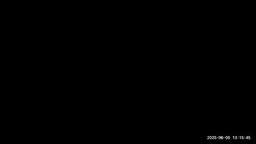
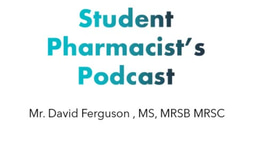
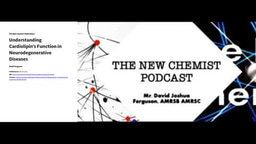
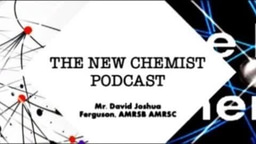
Please sign in or register for FREE
If you are a registered user on Research Communities by Springer Nature, please sign in